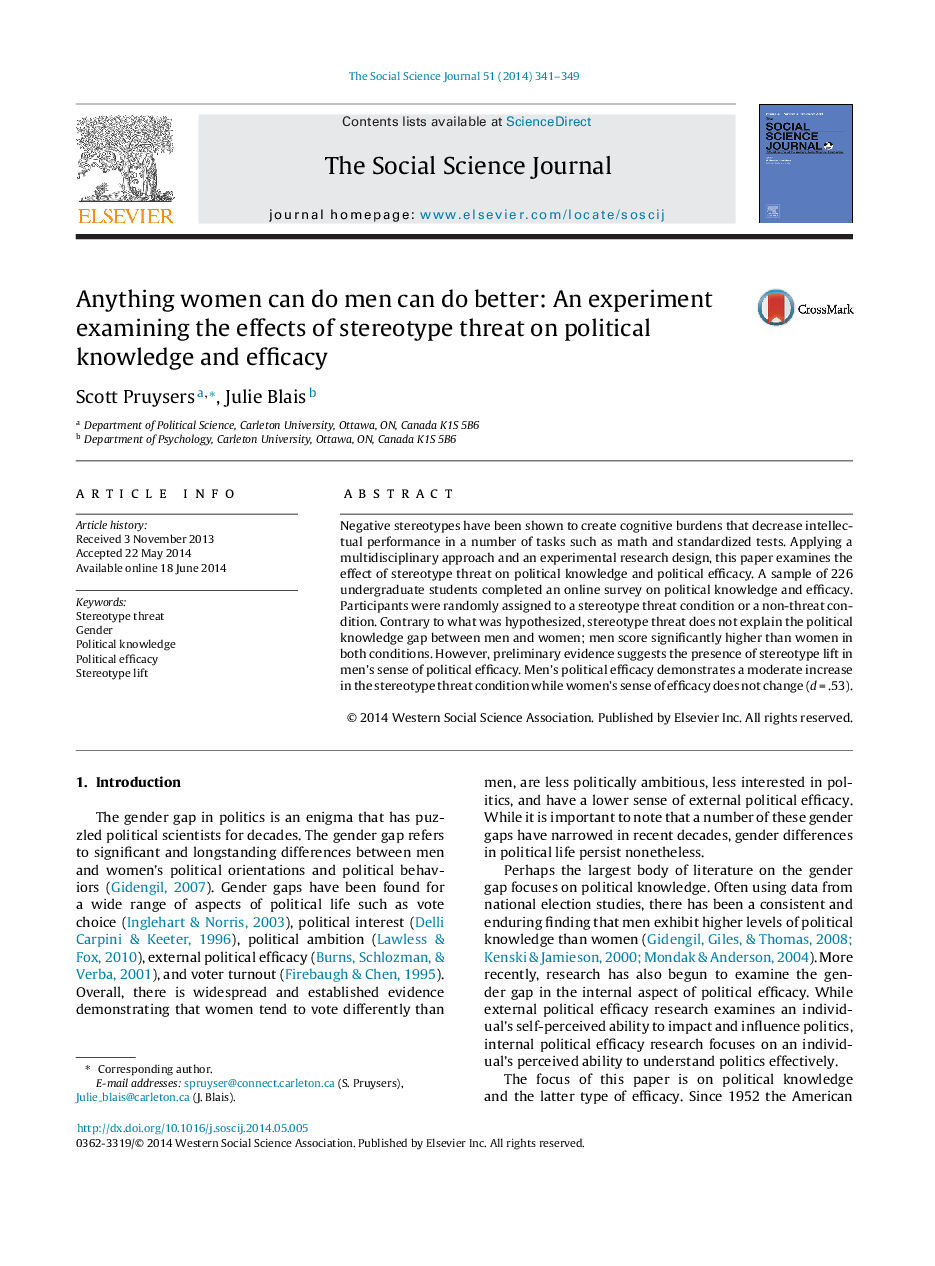| Article ID | Journal | Published Year | Pages | File Type |
|---|---|---|---|---|
| 139986 | The Social Science Journal | 2014 | 9 Pages |
Negative stereotypes have been shown to create cognitive burdens that decrease intellectual performance in a number of tasks such as math and standardized tests. Applying a multidisciplinary approach and an experimental research design, this paper examines the effect of stereotype threat on political knowledge and political efficacy. A sample of 226 undergraduate students completed an online survey on political knowledge and efficacy. Participants were randomly assigned to a stereotype threat condition or a non-threat condition. Contrary to what was hypothesized, stereotype threat does not explain the political knowledge gap between men and women; men score significantly higher than women in both conditions. However, preliminary evidence suggests the presence of stereotype lift in men's sense of political efficacy. Men's political efficacy demonstrates a moderate increase in the stereotype threat condition while women's sense of efficacy does not change (d = .53).
